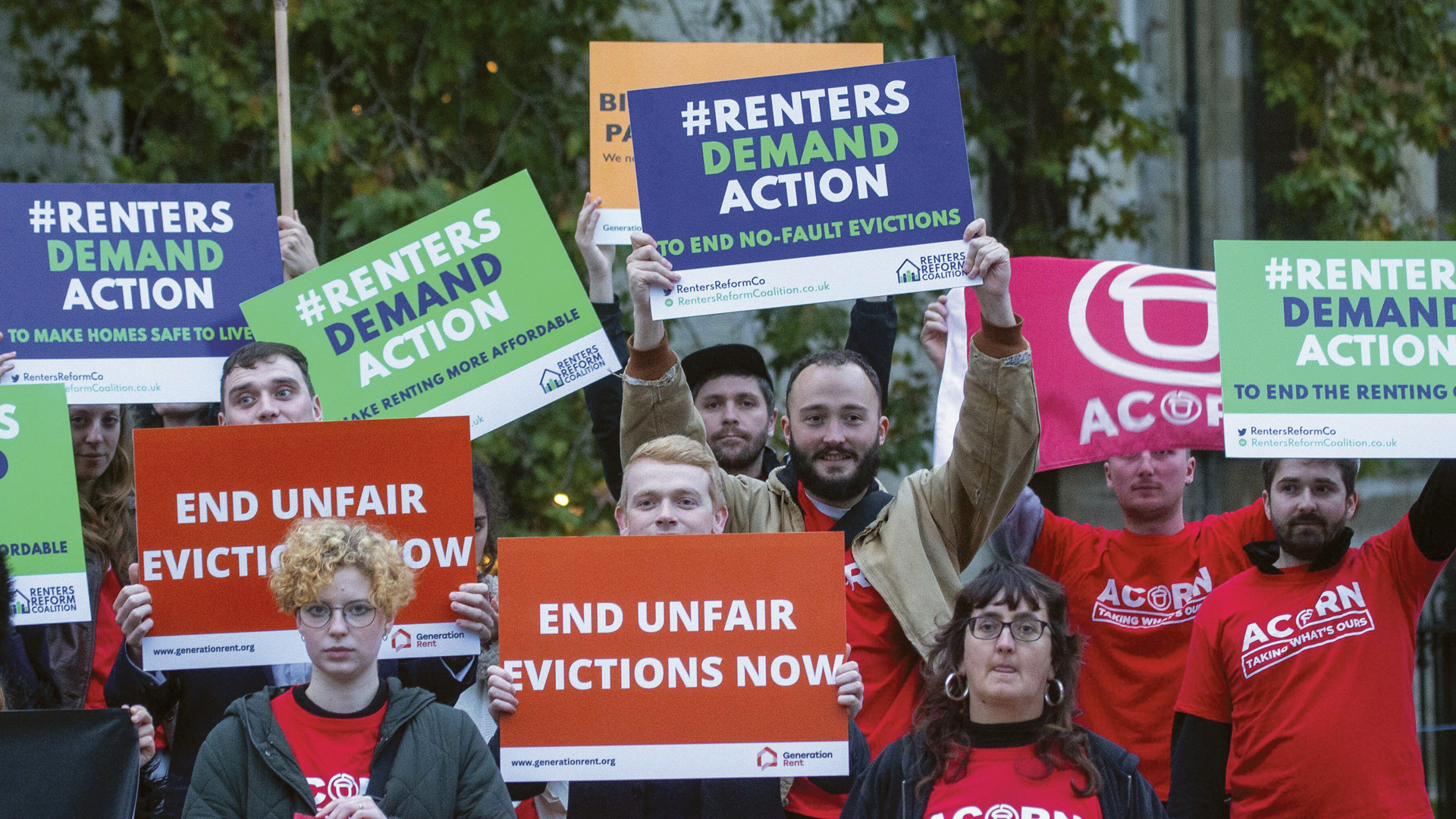At last the government has finally, eventually, completely, firmly, listened to the pleadings of private landlords to stop the repeal of Section 21 in its tracks – dressing this up as a postponement in the Renters Reform Bill. Since 2019, when it first entered the magical world of the Conservative Manifesto, the removal of people from their homes under the ‘no-fault evictions’ Section 21 (of the Landlord and Tenant Act) was seen as the iniquitous outcome of a piece of legislation that allowed landlords to dismantle the security of family life on a whim. Government ministers spoke about the power of Section 21 to completely screw any sense of security for tenants in the world of renting.
Yet now, possibly because there are many, many Tory MPs who are private landlords, and because of the lobbying of various private landlord ‘trade unions’ – badgering for a better deal for their members and fuck the tenant – the government has decided to shelve, postpone, dump, ‘await a more suitable time for’ – in short, to drop the removal of Section 21.
Get the latest news and insight into how the Big Issue magazine is made by signing up for the Inside Big Issue newsletter
It has been a long and slow and but at times promising road since those early pledges by Tories – seemingly – to stand up for the tenant against the landlord and pronounce that Section 21 is wrong. But finally they have settled for the usual support they give to those that aspire to own their own property. And build up a prosperous portfolio, or sometimes just enough to give them a steady income in retirement.
The Sunday Times business section runs a weekly column where they ask known individuals about their money. And one of the questions they ask is, is it better to have a pension or property? Most go for property. Until Liz Truss’s incendiarist actions that nearly screwed the economy big time, property had looked the rosier choice.
Since Truss’s regime landlords have seen their mortgages go up significantly (most landlords acquire their properties through ‘buy to let’ mortgages). So they want to pass that increase on to renters. And that often means moving people on quickly so that new tenants will pay a higher rent.











